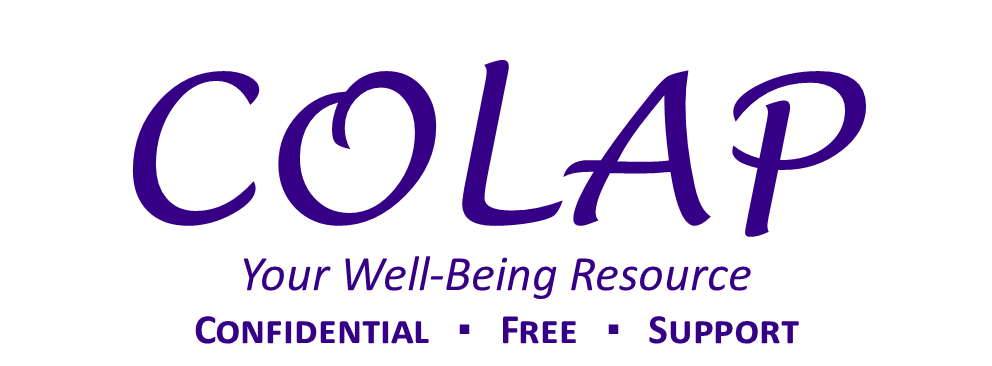Self-Imposed Limitations

Colorado Lawyer Assistance Program
2490 West 26th Avenue
Denver, CO 80211
303-986-3345
www.coloradolap.org
“When I let go of what I am, I become what I might be.” ― Lao Tzu.
What sort of negative or unreasonable limitations do you impose on yourself that prevent you from being happy, content, and joyful? Often, judges and magistrates blame their busy, stressful schedules for their lack of self-care. In a law based society, however, the expectations, duties, and responsibilities placed on officers of the court can be overwhelming. Thus, you have an even greater responsibility to safeguard your wellbeing. Self-care is not optional; it is essential. Below are some tips for “cleaning up” those habits that keep you from feeling your best:
1. Produce more serotonin. Serotonin is a neurotransmitter that produces relaxation and calm, amongst other things. Research has found that individuals who produce more serotonin have higher social status than those who produce less. Individuals who know how to self-sooth themselves, who handle their emotions in a mature and mindful way, have a greater impact on their environment and naturally produce more serotonin.
2. Be yourself. First, we have to know who we are, and then we have to be dedicated to speaking and behaving in ways that align with that self. When we aren’t able to speak or behave in authentic ways because we fear retaliation from the “other” in some way, resentment and self-pity can result. It takes a lot of energy to suppress your ideas or your true personality, and to wear different masks to please (or confront) those around you. That is an unnecessary drain on your energy.
3. Don’t compare yourself to others. We all learned how to speak and behave by watching those around us. As adults, we no longer need to compare ourselves to others. Be who you want to be, not who you were taught to be.
4. Change your opinion of vulnerability. Being vulnerable is a strength, as is asking for help when we need it. Most emotions can be rationalized or argued away, but those who have inner strength allow themselves to feel their emotions, process them, and then use them as motivation for change. Be honest about how you are feeling.
5. Appreciate yourself. Many of us were taught that to appreciate ourselves was vain and modesty was admirable. This tendency can cause us to behave as if other people’s needs are more important than our own. Supporting others at our own expense can leave us feeling like a martyr; alternatively, behaving like a narcissist to mask low self esteem and a lack of self-worth will also leave us feeling hollow. Either way, whether it is the “martyr” or the “narcissist,” both extremes reflect a lack of self-worth. It’s time to improve your opinion of you and those around you. Let go of judgment, jealously, and self-deprivation.
6. Create quiet time for yourself. If you are used to being “on” 24/7, it can be difficult to walk away from your computer or smartphone. The key is to take the time to check-in with how you are feeling and what you are thinking. During an especially demanding, high-paced workday, or evening with friends/family, you can end up losing yourself in other people’s needs. You need time every day during which you can relax, and not respond to anything from the external world. Put time in your daily calendar for you!
Your mind and body will reward you for tending to yourself so that you aren’t always “running on empty,” resulting in a better quality of life. Choose at least one or two ideas above and start working on them today!
By Sarah Myers, JD, LMFT, LAC Executive Director, Colorado Lawyer Assistance Program © Colorado Lawyer Assistance Program, 2020
The Colorado Lawyer Assistance Program (COLAP), your free, confidential and independent well-being program for Colorado judicial officers, is available at www.coloradolap.org or by calling 303-986-3345. If you or a colleague are in need of confidential support, referrals, direction on how to resolve personal or professional stressors, or are interested in a free well-being consultation, please contact COLAP directly for assistance.